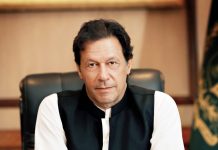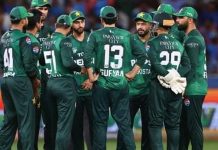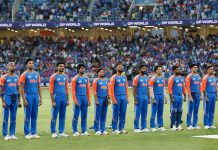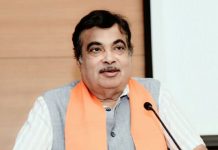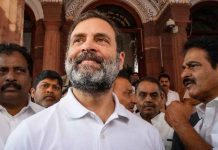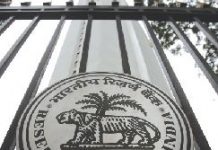
In May 2013, N Srinivasan was reeling under a barrage of legal beamers and bouncers. Since 2008, his critics had said that he could not continue as a cricket administrator — BCCI president — and also own an IPL franchise, Chennai Super Kings, which was a clear case of “conflict of interest”. His son-in-law Gurunath Meiyappan was arrested by the Mumbai Police for involvement in match-fixing and illegal betting in the Indian Premier League (IPL). Almost everyone wanted the BCCI chief to quit.
By October 2013, Srinivasan felt that he had swayed, hooked and pulled skilfully to deal with the menacing deliveries. Meiyappan was granted bail and a committee, appointed by the BCCI, concluded that neither Meiyappan nor Chennai Super Kings was involved in illegal activities. Srinivasan was re-elected as the BCCI chief the same year. His nemesis, AC Muthiah, who hurled the “conflict of interest” beamer, withdrew the civil evesuit filed in Chennai’s sessions court. The case, which reached the Supreme Court, became void. (Muthiah’s plea was that Srinivasan should either give up Chennai Super Kings, which he owned through his family-promoted India Cements Ltd, or resign from the BCCI post.)
Only one irritant remained. The sc had appointed a committee, headed by Justice Mukul Mudgal, to probe the match-fixing and betting charges. However, its terms of reference did not mention anything about “conflict of interest”. Srinivasan was convinced that he would be exonerated and was more worried about the issue of Chennai Super Kings’ ownership. He dreamt of how he could possibly continue forever as the BCCI head as he had changed the rules that earlier restricted the tenure to three years. As scheduled, he could also become the president of the International Cricket Council.
However, Srinivasan didn’t reckon with Justice Mudgal, and his report, which was submitted to the sc in February 2014. The Mudgal committee stated that several people, who were not connected with the BCCI, and were “neither in the BCCI hierarchy nor are the beneficiaries of BCCI”, were agitated about the issue of “conflict of interest”. The committee felt that while the questions raised about it “are serious and may have largescale ramifications on the functioning of cricket, we do not deem it proper to pronounce our opinion on this issue as it is not directly in our terms of reference”.
But in the same breath, the committee added that “since several stakeholders stressed on this issue, we thought it proper to bring this issue to the attention of this Hon’ble Court”. The cat was set among the pigeons. Srinivasan’s Achilles heel was exposed again. The sc had no option but to deal with this aspect. In its judgment on 22 January 2015, the apex court hit Srinivasan on the body with a fast “conflict of interest” delivery that soared from the good length.
The sc said that a cricket administrator such as Srinivasan cannot own an IPL franchise. It struck down the amendment to the BCCI’s Rule 6.2.4 on 27 September 2008 or the day Srinivasan became the president for the first time. Earlier, the rule barred any administrator, including the president, from having any “commercial interest… in the matches or events conducted by the Board”. This included the IPL. The change excluded “events like IPL or Champions League Twenty20” from its purview. Thus, Srinivasan could now own Chennai Super Kings.
The court added that the amended Rule 6.2.4 was the “true villain”, and it “shall have to be struck down”. It added that the “BCCI’s commercial plans (like IPL) for its own benefit and the benefit of the players are bound to blow up in smoke, if the people who watch and support the game were to lose interest or be indifferent because, they get to know that some business interests (like India Cements) have hijacked the game for their own ends or that the game is no longer the game they know or love because of frauds on and off the field”. The amendment was deemed to be bad in law.
At first glance, it seemed that the sc gave Srinivasan a choice. He could sell Chennai Super Kings, and stand for re-election as BCCI president; the Board’s elections scheduled in September 2014 were postponed and have to be held within six weeks of the sc order. Or he could give up the post and retain the franchise. Srinivasan was interested in the BCCI post. In September 2014, the India Cements board transferred the assets related to Chennai Super Kings, which was earlier a division, to a 100 percent subsidiary, which could be hived off to a new owner.

Photo: AFP
In 2008, after he won the franchise in an auction, Srinivasan hinted that he was not wedded to Chennai Super Kings, and he would divorce it from India Cements within 3-4 years. In a conversation with stock market analysts, he said that while Chennai Super Kings would start off as a division of the company, and the promoters were barred from selling their stakes for three years, the intention was to hive it off as a separate company after the lock-in period, and come out with a public issue to sell a part of the stake to investors.
The idea was to benefit from an increase in the team’s valuation. Srinivasan explained that given the global experiences of the football clubs, which were purchased by corporate entities, the value of Chennai Super Kings could zoom from the $91 million that India Cements paid to $300-400 million “without sweat” within three years. Thus, India Cements could earn huge profits from a sale of just a third of the shares, which could earn $100-133 million.
He added that the franchise came free. While India Cements had to pay $91 million in 10 annual instalments, or $9.1 million a year, it would earn a similar yearly amount because the BCCI had agreed to share a substantial portion of the telecast and media rights — which the Board sold for $1 billion for 10 years initially, and later for a 60 percent higher price — equally with the franchisees. So, the franchise was free of cost, and as Srinivasan said, “there is not a rupee going out of my pocket”.
In addition, as per the IPL rules, the franchise could retain the revenues it earned from advertising on players’ shirts. He claimed that the Sahara Group paid Rs. 130-150 crore to have its logo on the shirts of the Indian national team, and Nike, a global sports brand, Rs. 100 crore. The income from sale of tickets from home games, i.e., seven matches that were held each season in Chennai, and local promotions were retained by the franchise. It was a win-win situation.
According to India Cements’ 2013-14 annual report, the company earned Rs. 166 crore, or more than $27 million, from the IPL. If one assumes that Chennai Super Kings spent at least $15 million, including $9.1 million as annual auction fee, money paid to buy players — most were purchased in players’ auction — and administrative costs, the company earned a cool profit of more than Rs. 70 crore.
But that was not the critical reason to buy Chennai Super Kings. Srinivasan’s idea was to use the team as a marketing tool to improve India Cements’ brand image, a strategy that was pioneered by Cemax in Mexico. Cemax bought a football club, which added phenomenally to its image and the price of its products and shares. India Cements, too, hoped to leverage the Chennai Super Kings brand to charge up the stockistsretail networks and distribution channels. Chennai Super Kings would allow India Cements to be known across the country.
Thus, Srinivasan should not find it difficult to sell Chennai Super Kings. A new buyer would be excited by its profitability, the owner’s ability to gain marketing and branding benefits, and the fact that the IPL allows the team to be owned in perpetuity. To explain the last point, IPL rules contend that while the owners would pay the auction bid price in 10 equal instalments, they would continue to own the team for as long as the league lasts. From the 11th season, the franchise would pay 20 percent of its annual revenues — from all sources such as its share of telecast rights and independent income — to the BCCI.

Photo: AFP
However, there is a catch — Catch-22 — that the sc introduced in its January 2015 order. Even if Srinivasan manages to sell Chennai Super Kings, he may still be unable to stand for the forthcoming BCCI election. The reason: the apex court appointed a new committee to decide the punishment for the illegalities committed by Meiyappan and Raj Kundra (part-owner of Rajasthan Royals), who were found guilty of illegal betting. The committee’s term was fixed at three months and the BCCI has to hold the election within six weeks.
In its conclusion, the sc stated that “no one who has any commercial interest in the BCCI events — including Mr N Srinivasan — shall be eligible for contesting the election for any post whatsoever. We make it clear that the disqualification for contesting elections applicable to those who are holding any commercial interest in BCCI events shall hold good and continue till such time the person concerned holds commercial interest or till the (new) committee considers and awards suitable punishment to those liable for the same; whichever is later”. The key phrase is “whichever is later”.
Legal experts feel that this implies that until the committee submits its report in three months, Srinivasan cannot contest in the BCCI election to be held in six weeks. “The intent of the court may be to stop Srinivasan from becoming the president again,” says one of them. Although the phrase may seem inconsistent — the committee will only decide the punishment against those convicted in match-fixing and betting charges, in which Srinivasan was given a clean chit — it is there in the order.
The new committee can disband Chennai Super Kings, and bar it from participation in the IPL. IPL rules allow this as the maximum punishment. The relevant clauses say that a franchisee can be terminated if a team official — the sc found Meiyappan to be one — is involved in issues that impact the “reputation or standing of the league or BCCI-IPL (which manages it), BCCI, the franchisee, the team or game of cricket”. Clearly, no buyer will be interested in Chennai Super Kings until the committee finalises its report.
Given these circumstances, Srinivasan may not find a buyer for Chennai Super Kings, as potential bidders may wish to wait for the committee report. Even if he manages this feat, he may not be able to stand for the BCCI election, since he will need to wait for the report. Either way, he seems stuck. Unless, of course, if he approaches the sc and gets a clarification on the issue. Yet another bouncer he cannot duck; he has to either hook or pull over the midwicket boundary.

